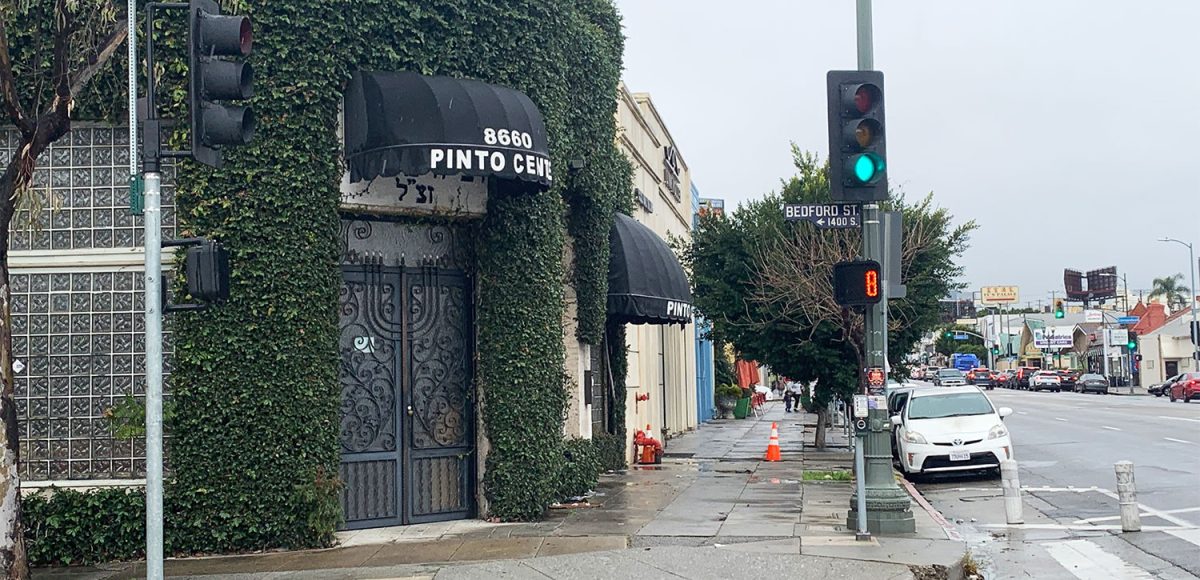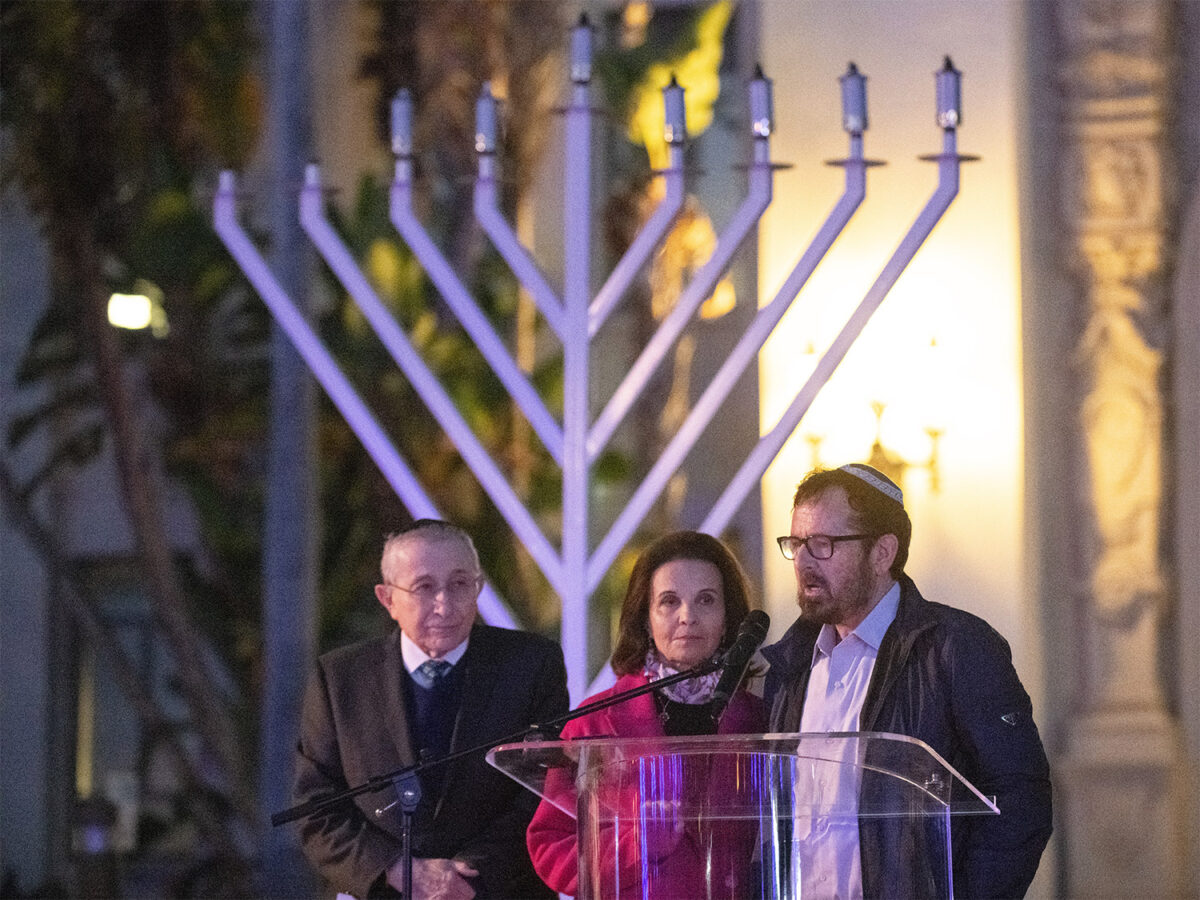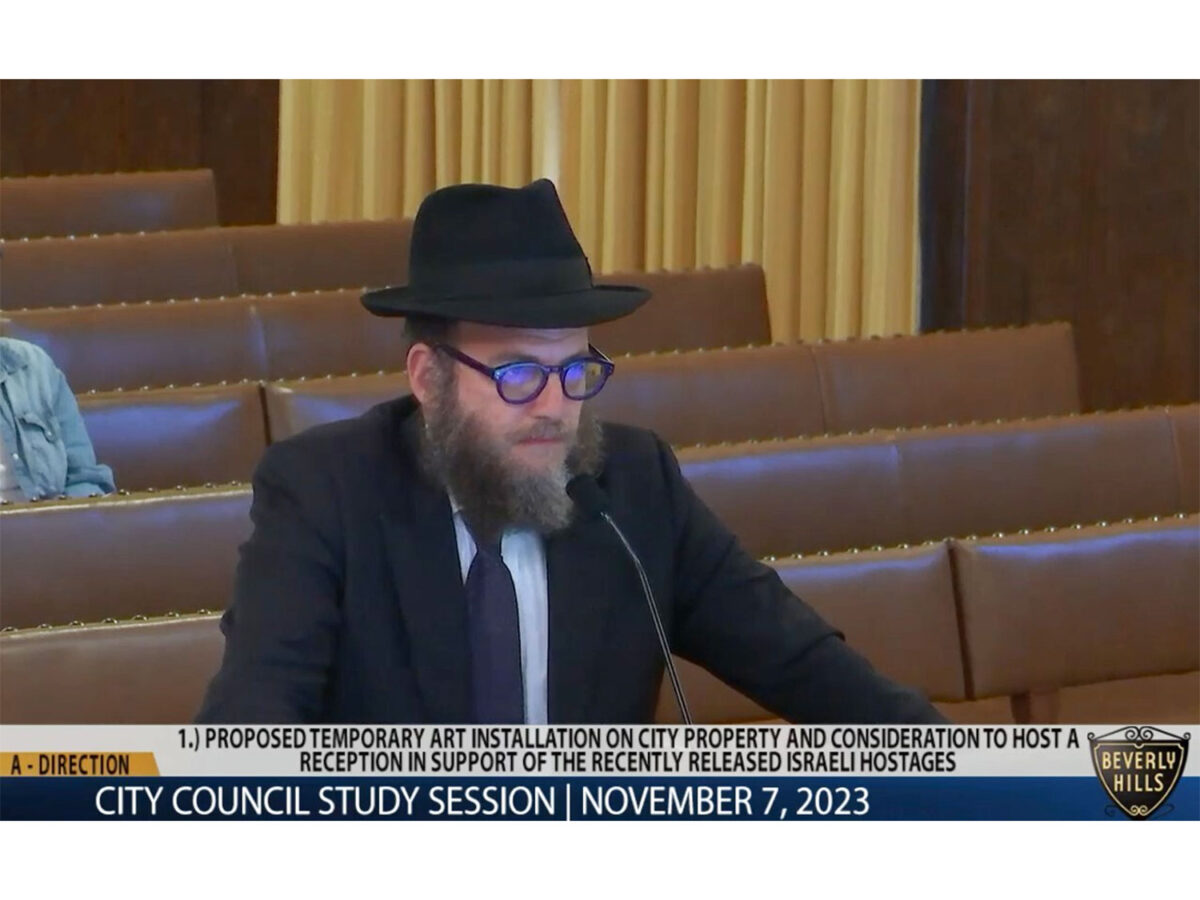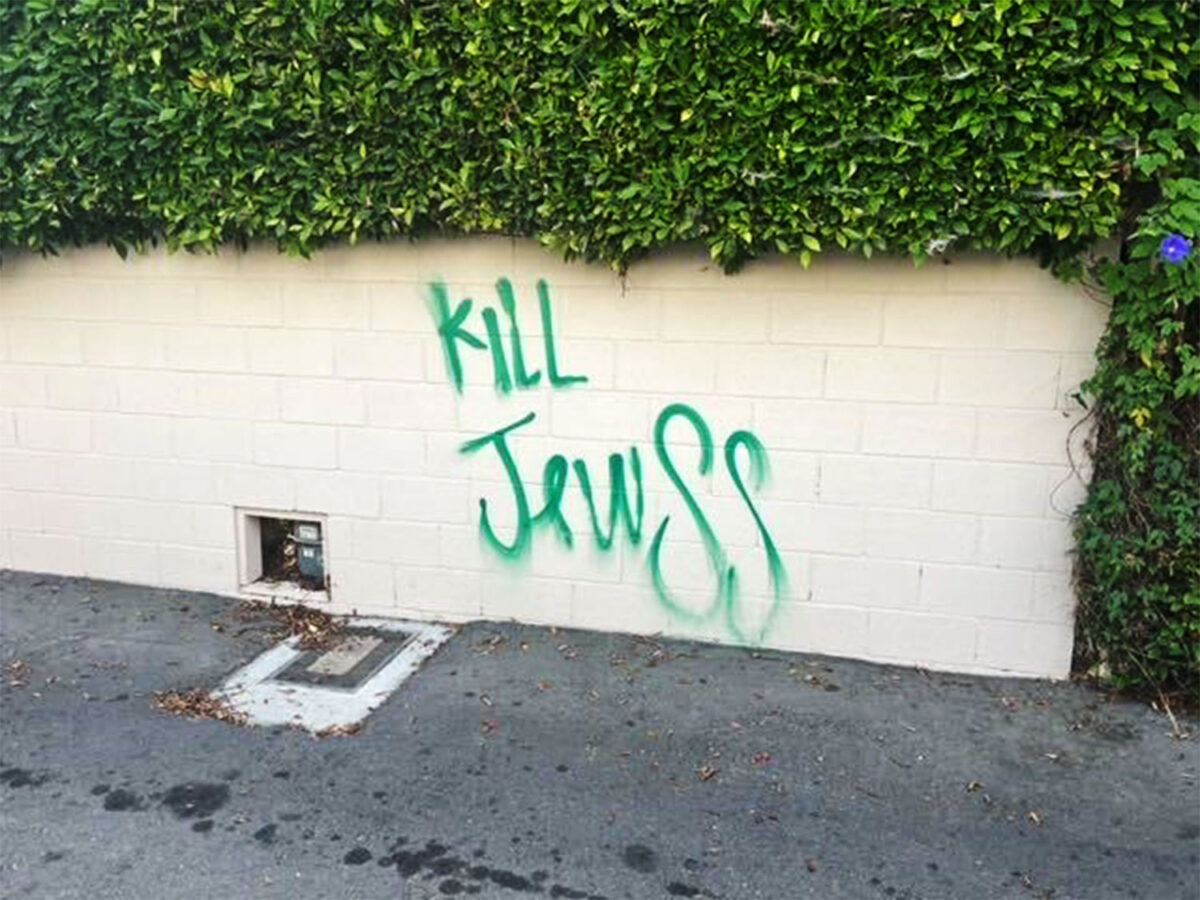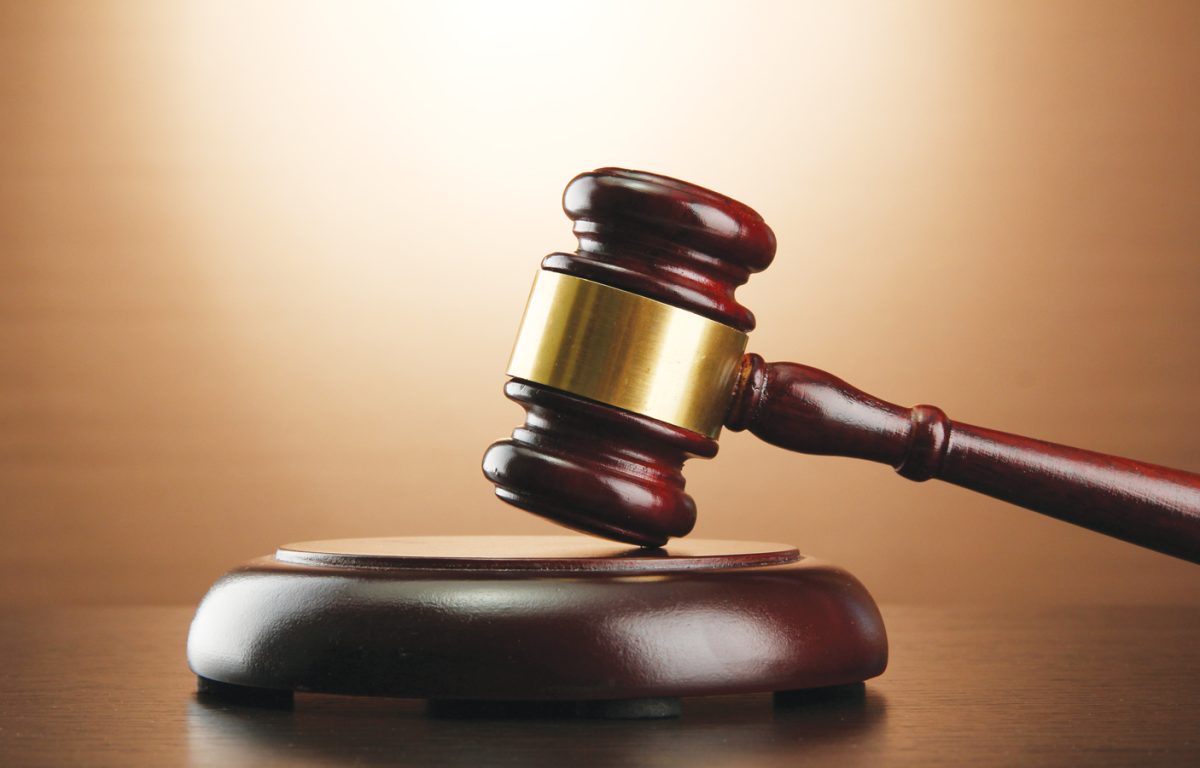Federal hate crimes charges have been filed against Jaime Tran, a former Riverside resident who allegedly targeted and shot two Jewish men in Pico-Robertson, a predominately Jewish neighborhood in West Los Angeles, on Feb. 15 and 16.
According to the U.S. Attorney’s Office for the Central District of California, Tran allegedly targeted two victims because they were Jewish or he believed them to be Jewish.
If convicted, Tran could face life in prison. Because the complaint alleges he attempted to murder the two victims, the maximum statutory penalty for each of the two hate crimes is life without parole in federal prison, according to the U.S. Attorney’s Office.
“Over the past two days, our community experienced two horrific acts we believe were motivated by antisemitic ideology that caused him to target the Jewish community,” U.S. Attorney for the Central District of California Martin Estrada said during a Feb. 17 news conference announcing the charges. “It is important, especially in one of the most diverse areas in the world, that we celebrate our differences, and stand together to oppose acts of hate.”
On Feb. 17, Tran made an initial court appearance, where a federal judge ordered him held without bail, according to the U.S. Attorney’s Office. He was not asked to enter a plea. His arraignment is scheduled for March 9.
The announcement of federal charges against Tran followed the shooting suspect’s high-profile arrest the evening of Feb. 16 in connection with the two Pico-Robertson incidents, which resulted in non-life-threatening injuries to two victims.
Los Angeles Mayor Karen Bass denounced the antisemitic shootings during the Feb. 17 press conference.
“When antisemitism crawls out of the shadows, make no mistake, Angelenos from every community stand united to stamp it out,” Bass said. “Antisemitism has no place in Los Angeles, no place in our country. My administration is resolute against hate, and we’ve made it a chief component of our agenda.”
The shootings occurred at approximately 9:45 a.m. on Feb. 15, and approximately 8 a.m. on Feb. 16, as the two men were leaving prayer services at neighborhood synagogues.
Both victims were shot at close range. The first victim suffered a gunshot wound to his lower back, while the second victim sustained a gunshot wound to his upper arm, according to the U.S. Attorney’s Office. Both victims survived.
Both victims were wearing clothing that “visibly identified their Jewish faith,” including black jackets and head coverings, federal prosecutors said.
The second victim was shot just one block from where the first victim was shot the day before.
Tran has a history of animus towards the Jewish community, the federal complaint says. In 2022, he sent antisemitic text messages to former classmates at a dental school. He told investigators he was homeless and had been living in his car for the past 12-14 months.
He told authorities he chose victims in the Pico-Robertson neighborhood after searching Yelp, the business-review app, for a kosher market. After locating the market, Tran allegedly drove to the area, where the first shooting occurred. He returned the following day.
Los Angeles police initially said the shootings were unrelated. In response to the first shooting, authorities initially discounted the possibility the shooter was motivated by antisemitism.
However, “the facts of the case led to this crime being investigated as a hate crime,” a LAPD statement said.
An officer responding in Pico-Robertson to assist with the investigation photographed “a male Asian in his 30s driving a dark gray Honda Civic,” the complaint says. The car and driver in the photograph matched subjects captured in surveillance footage of one of the shooting incidents. The photograph captured the vehicle’s license plate.
Los Angeles police identified a mobile telephone associated with Tran. The Cathedral City Police Department, working collaboratively with federal and regional partners, arrested Tran without incident in Cathedral City, Riverside County, on Feb. 16. He was taken into custody around 5:45 p.m. Officers discovered several items of evidence, including a rifle and a handgun.
“I am proud of the outstanding work by our investigators in the identification and apprehension of the individual responsible for these hate-inspired attacks,” LAPD Chief Michel Moore said in a statement. “Additionally, I applaud the actions of our officers to quickly bolster our visibility in the impacted communities that were terrorized.”
Jewish community groups credited law enforcement for their swift work identifying and arresting the suspect.
“The arrest of the person accused of shooting two Jewish men in the Pico-Robertson neighborhood in 24 hours gives a sigh of relief to L.A.’s Jewish community,” Anti-Defamation League Regional Director Jeffrey Abrams said. “We are aware that the case is being investigated as a hate crime and look forward to learning more about a possibly hate-driven motive.”
“We are incredibly grateful for law enforcement’s diligence in apprehending the suspect,” the Jewish Federation of Greater Los Angeles said.
Online newspaper the Forward identified one of the two victims as Guy Taieb, 73. Taieb was reportedly walking home from prayer services at the Pinto Center, a Moroccan synagogue on Pico Boulevard, when Tran allegedly pulled up beside him in a sedan. Taieb was shot at in the arm, The Forward reported.
Rabbi Abraham Cooper, associate dean of the Simon Wiesenthal Center, expressed appreciation the suspect was apprehended and charged. Nevertheless, local Jewish families were on edge which was unacceptable, Cooper said.
“Parents who will be looking over their shoulders walking to prayer on the Sabbath is not a situation that should be normal anywhere,” he said.
In the aftermath of the attacks, Jewish leaders came together at a town hall organized by the Jewish Federation of Greater Los Angeles on Feb. 20 (see Town Hall story).
In a phone interview, Yoni Ari, CEO of the Jewish Emergency Preparedness Program (JEPP), urged places of worship, in light of the Feb. 15 and 16 shootings, to further hone their “culture of preparedness,” which means not only considering what technical security enhancements could be made to their facilities but managing human behavior as well.
“To build resilience is to make sure that, even in a stressful time,” Ari said, “you’ll know how to react in the best way.”



